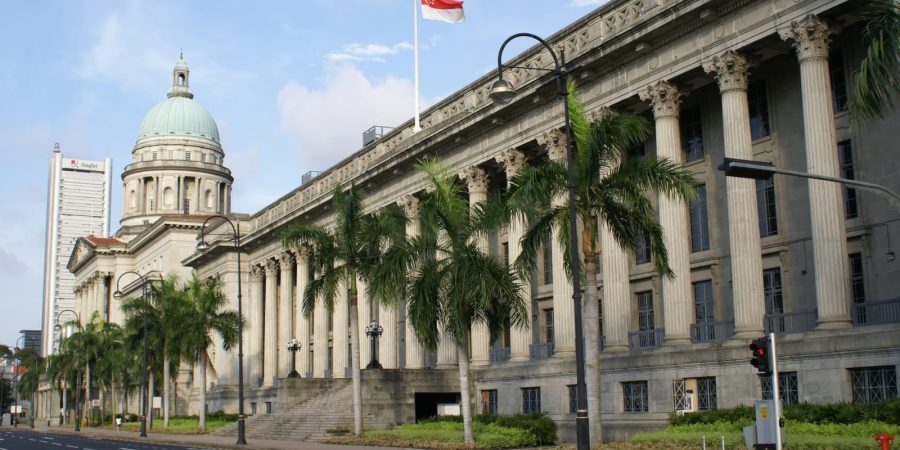Contracts will very frequently contain a clause that specifies which ‘governing law’ is to apply to the contract. The governing law refers to the country’s laws that will apply to the contract. Laws can vary significant between different countries, so it’s important for parties entering into a contract to know which laws to apply. This is particularly true for cross-border contracts, but it’s also important even if both parties reside in the same country.
In this guide, we discuss:
- Why is governing law important?
- What should a governing clause cover?
- Can I use a foreign law to govern contracts in Singapore?
- Can a foreign governing law be ignored?
- Which law should I use for signing contracts in Singapore?
- What happens if a governing law is not specified?
- How should I protect myself if another party sues me?
Why is the governing law important?
The governing law of a contract is of utmost importance. The choice of governing law will have significant consequences in determining whether parties have lived up to, or breached, their contractual requirements. The choice of governing law will also affect the type, and amount, of compensation that parties can claim, if they’ve suffered from losses due to breach of contract.
In civil lawsuits, Courts will use the governing law of the contract to interpret the contract’s terms. This will extend to whether the contract is valid, how to read the contract’s different clauses, whether there has been consideration (a legal concept of an exchange of interests, vital for forming a valid contract), whether the parties have fulfilled their obligations, and much more. The same contract, using different governing laws, can lead to very different outcomes!
What should a governing clause cover?
In contracts, there are two kinds of obligations:
- Contractual obligations: Your responsibilities stated in the contract.
- Non-contractual obligations: Your responsibilities in general law, outside of the contract. For instance, the contract might not hold you liable for personal injury, but under Singapore law, you can’t exclude liability for personal injury.
Parties who are drafting a contract should therefore think about whether they want to the same country’s governing law to apply to both contractual vs non-contractual obligations, or only to one. In many contracts which are carried out in Singapore, people will usually have Singapore law govern both obligations for simplicity.
Can I use a foreign law to govern contracts in Singapore?
Yes, you can.
Contracts that are formed in Singapore can certainly state a foreign governing law. This is allowed because Singapore’s legal system (along with most legal systems around the world) recognise the power of parties to define their own contractual relationships.
For instance, a European multi-national conglomerate may award a software development contract to a Singapore-based IT company. The European corporation may require the Singapore IT company to sign Non-Disclosure Agreements and a Sale and Purchase Agreement, that are governed by EU law, rather than Singapore law. If the two parties have a legal dispute, the lawsuit will be tried using EU law.
When you sign a contract, you can specify:
- The law you wish to apply (e.g. Singapore law, Malaysian law, German law, etc.)
- The Court and/or arbitration centre you wish to hear disputes in (e.g. Swiss Court, Swiss Arbitration Centre, Courts in New York, USA, Courts in New Zealand, etc.)
When applying Singapore law to contracts, the result is fairly straightforward – cases will be heard in Singapore Courts, under Singapore law. Most such contracts will also state that arbitration cases are to be heard in the SIAC (Singapore International Arbitration Centre) – a world-renowned locus for arbitration.
When entering into international contracts, it can get a little trickier, depending on the specific contract. For instance, if you enter into a contract with a US-based entity, you should remember that there are 50 States in the US. Each State has its own unique regulations. A US-based entity could have its contract governed by the State of New York, USA, but its Court seat (i.e. location where trials will take place) could be in Los Angeles, CA – that’s the other end of the country.
Can a foreign governing law be ignored in Singapore?
Yes. If a contract is stated to be governed by a foreign law for the express purpose of evading Singapore’s Unfair Contract Terms Act, then the foreign governing law will be ignored by the Courts. Singapore law will automatically override the foreign governing law clause.
For example, the Unfair Contract Terms Act states that you cannot exclude liability for death or personal injury. So if you run an outdoor adventure business, and try to get around this by applying some foreign law that does protect you from liability for death/personal injury, that contract won’t be valid. Singapore law will override it, and participants will be free to sue you if they suffer death or injuries.
Which governing law should I apply for contracts in Singapore?
If the contract is to be carried out in Singapore, then it’s best to use Singapore law. This is usually the most convenient for both parties. Both parties will have access to the widest pool of lawyers, since the majority of legal professionals here will be most experienced with local law.
Applying a foreign law in a local Court would require litigants to invest additional resources. It would require lawyers who are experts in that specific foreign law (e.g. imagine hunting for a local expert in Egyptian law or Brazilian law), calling for foreign expert witnesses, and additional evidence to support the case. All this could make any lawsuit much more expensive and time-consuming.
Additionally, if a foreign law and a foreign court is specified, your lawyers and you will have to physically travel to that country’s Court to hold the lawsuit. For instance, if entered an international contract overseen by Australian law, in the Australian Courts, you’d have to fly to the country to fight your case. This can be a big stumbling block in mounting an effective lawsuit, if you don’t carefully review the governing law of your contract.
What happens if a governing law is not specified?
If a governing law is not specified in the contract, and a lawsuit later erupts, the Court may make its own decision on what law to use. Usually, the governing law chosen will be the one that can fit best to the terms of the contract. You don’t want to leave it to the Courts to decide, so it’s best to remember to state the governing law in your contracts!
If you’re entering into a contract and the other party insists on using a law other than Singapore law, you might want to consult a lawyer to understand the implications of this, before signing the contract.
Examples of governing law clauses for international contracts:
Here’s an example of a governing law for a cross-border contract that is to be overseen by the law of the State of Massachusetts, in the USA. The arbitration is in Geneva, Switzerland.
“This Contract shall be governed by the laws of the State of Massachusetts, which is applicable to contracts made and to be performed within or outside such State. Any dispute or claim arising from, or in any connection to this Contract, shall be resolved by arbitration. Arbitration procedures shall be conducted with the Swiss Rules of International Arbitration in force on the date when the Notice of Arbitration is submitted in compliance with these Rules. The number of arbitrators is to be five. The arbitration location shall be at Geneva, Switzerland. The arbitration will be conducted in Swiss German and all documents shall be provided in the Swiss German language, or with translations into the English language if necessary.”
If you’re a Singapore company and you sign a contract with terms like this, you should prepare a good amount of resources. If there’s any legal dispute, you’ll taking frequent holidays to Geneva to settle your argument!
Such a clause shows why it’s important to review governing clauses, especially when signing contracts with foreign parties.
Examples of Singapore governing laws in local companies:
Here are some examples of governing law. These are found in the Terms and Conditions section of companies in Singapore.
- Grab: Grab states that its Terms of Use are governed by Singapore law.
- Best Denki: Best Denki states that its Terms & Conditions are governed by Singapore law.
How should I protect myself from lawsuits?
If you enter into a contract and get sued, you can expect to fork out a big sum. You’ll need to pay lawyers (who are very expensive), and also potentially pay for damages/settlements. Even if you’re in the right and did nothing wrong, you still need to fight lawsuit to prove to the Court that you’re innocent. That takes money – lots of it. If you don’t have sufficient resources, the other party could simply steamroll you. That’s where Professional Indemnity Insurance comes in.
Professional Indemnity Insurance covers a broad range of lawsuits, such as:
- Negligence lawsuits
- Errors & omissions lawsuits
- Defamation lawsuits
- IP infringement lawsuits
- Lawsuits related to subsidiaries
- Employee dishonesty lawsuits
- Breach of confidentiality lawsuits
- …and much more
Don’t wait till it’s too late to protect yourself from lawsuits.



